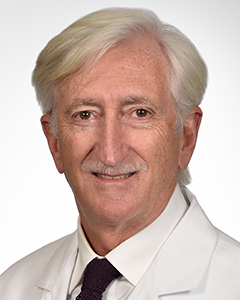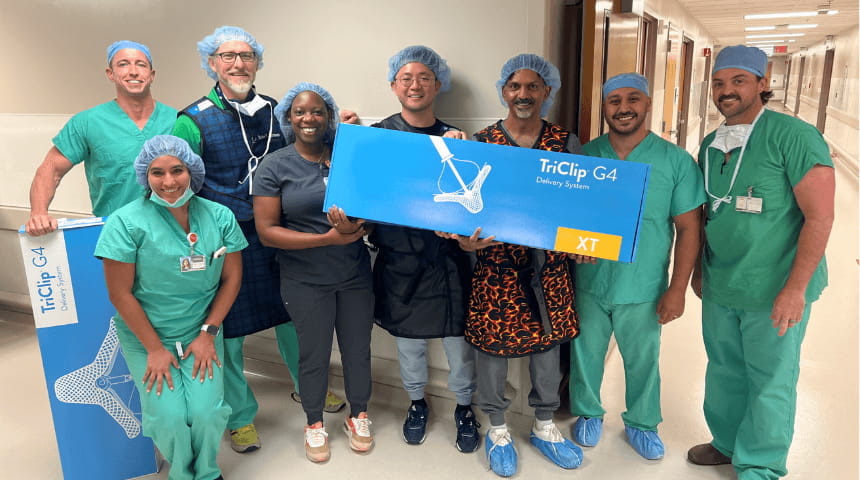Median sternotomy has been the traditional gold standard for mitral valve repair and replacement for decades. At Orlando Health Heart & Vascular Institute, surgeons take a slightly different approach. Instead of open-heart surgery, they bypass cracking a patient's chest in favor of minimally invasive valve procedures.

The less aggressive techniques used at Orlando Health access the mitral valve leaflets through a tiny two-inch incision. This provides patients who have severe valve leaks with a treatment option that reduces physical trauma, bleeding, and recovery time. Most patients leave the hospital within days and have few restrictions on their activities.
With Central Florida's most experienced surgeons in minimally invasive mitral valve procedures, Orlando Health evaluates each patient for the less intrusive approach. "If there are other reasons to do a sternotomy, that's fine," says Paul Massimiano, MD, a board-certified cardiothoracic surgeon and the medical director of cardiac surgery at Orlando Health Heart & Vascular Institute. "But our starting position for every patient is to do the least invasive procedure we possibly can.
"Our strength is that we have a comprehensive program that allows us to offer different techniques based on the individual's needs;" Dr. Massimiano says.
When a minimally invasive repair is deemed appropriate, "we don't cut through any bones or break any ribs. We just sneak in between the ribs on the right side and approach the heart using specialized techniques we've developed with scopes, cameras, and long instruments;' says Dr. Massimiano, a pioneer in minimally invasive mitral valve surgery. "This is a radically different method of surgical repair than a traditional sternotomy, but one we do here consistently. "If patients need mitral valve surgery and are told it can only be done through a traditional open-heart procedure, we'd like to see them to determine if they are candidates for minimally invasive," says Dr. Massimiano. "Often, they are. They just weren't aware of the options."
Refer a patient to the Orlando Health Heart & Vascular Institute by calling (321) 841-6444.





